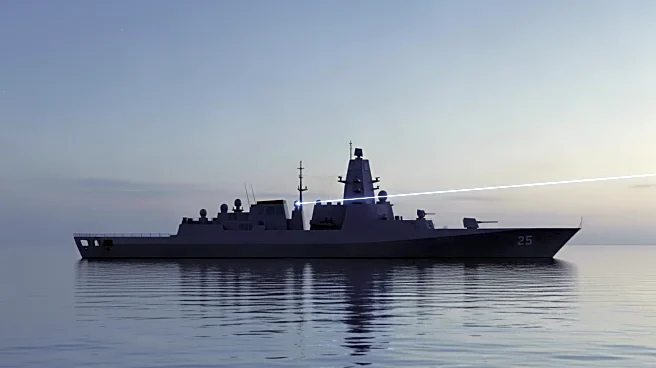What's Happening?
The UK's Ministry of Defence has announced that the Royal Navy will be equipped with the DragonFire laser weapon system by 2027, five years earlier than initially planned. This decision follows successful trials where the system demonstrated its capability
to track and destroy fast-moving drones. The contract, valued at £316 million ($413 million), has been signed with MBDA UK to deliver these systems, marking the first high-power laser to enter service with any European nation. The DragonFire system will initially be installed on Type 45 destroyers, which are the Navy's air defense ships. The laser weapon is seen as a cost-effective solution to counter the threat posed by low-cost drone aircraft, which can be used against ships.
Why It's Important?
The deployment of the DragonFire laser weapon system represents a significant advancement in military technology for the UK, positioning the Royal Navy at the forefront of innovation within NATO. This development is crucial in addressing the growing threat from drone aircraft, which can be equipped with explosives and used in attacks against naval vessels. The laser system offers a more sustainable and cost-effective defense mechanism compared to traditional anti-aircraft missiles, which are expensive and limited in number. The ability to continuously fire as long as there is sufficient electrical power provides a strategic advantage in naval defense.
What's Next?
The Royal Navy's integration of the DragonFire system is expected to enhance its defensive capabilities significantly. As the system becomes operational, it may lead to further developments in laser weapon technology and its applications in other military branches. The Ministry of Defence may also explore scaling up the power of the laser system in the future, potentially increasing its effectiveness against a wider range of threats. Additionally, the successful deployment of this technology could influence other NATO members to adopt similar systems, strengthening collective defense strategies.
















